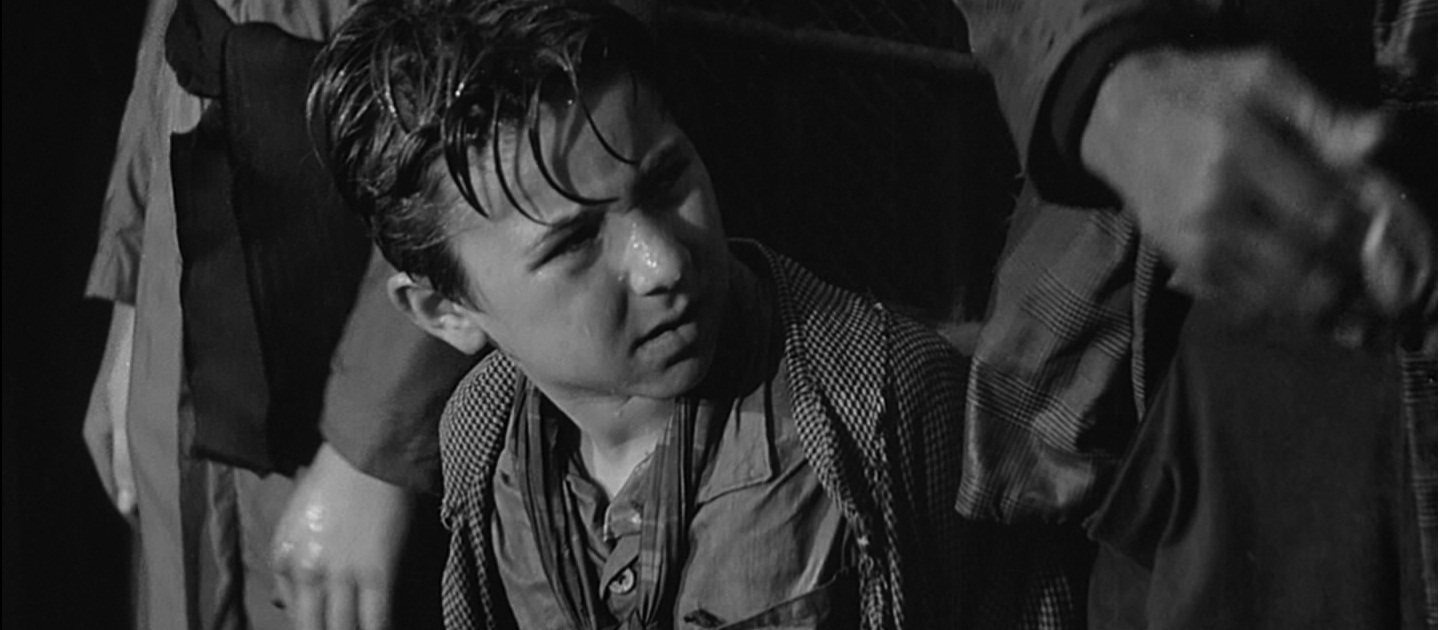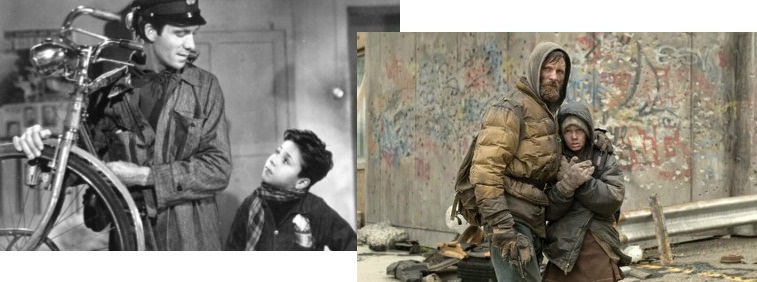Robert here w/
Distant Relatives, exploring the connections between one classic and one contemporary film. This week the last in a three part series on how one classic film can have many children.
Cormac McCarthy's novel The Road will most likely always be remembered as a great novel first and a somewhat well received film second. But whatever your opinion ofthe film, and the consensus seems to be that it could have benefited from a little more Bicycle Thief-esque neo-realisism (indeed it's the only of the three "children" of The Bicycle Thief that we've looked at, that isn't heavily influenced by that style), it's hard to ignore the relationship between the two films as two tales of a father and a son wandering through the remnants of humanity.
But before we get into the father/son dynamic, it's worth noting that the
heightened reality of post-apocalyptic cinema and the unavoidable realism of wartime pictures (and by that I mean films shot in a country during wartime or immediate post-wartime, not romantically shot prestige pictures) are fascinatingly similar.
More after the jump...In fact, plenty about The Bicycle Thief feels post-apocalyptic, the desperate citizenry, the break-down of society, the poverty, the slowly deteriorating cityscape. This setting, not artificially produced on a studio lot, creates an atmosphere of seeming unending dread that saturates the movie and its characters. As an audience, we may know that the depression will eventually lift, but there's no sense of this in the world of the film. The direness is even more pronounced in a post-war picture like The Bicycle Thief, since the time of strife has passed and civilization should be on the mend. Instead it feels like war was the apocalyptic event, and the darkness that follows is everlasting.

What naturally follows in a story set on this landscape is one of family and survival. So it is also that both The Bicycle Thief and The Road are tales inhabited by fathers and sons. The father/son relationship is pervasive throughout cinema, and most such movies, being made by men, are concerned with a man's ability to provide for his child, not just in terms of sustenance but in terms of spirit and survival. It's a cliche but possibly an honest one that all parents want lives for their children, better than their own. And whether it's motivating stage moms or human rights champions, this goal seems to be consistent (if only the priorities differ). The fathers of The Road and The Bicycle Thief exist in worlds where they can't possible achieve this.
The sons meanwhile, look up to their father protectors, unaware that there's seemingly no room left in their worlds for selflessness, and the images of their fathers as selfishly obsessed with protecting the two of them persist as the highest possible morality in a world with a rapidly lowering bar yet still somewhat amiss in the eyes of their own naivete or optimism or natural decency.

There's a shared sense of parental failure that pervades and marries both The Bicycle Thief and The Road. Hope is not exactly abundant. How our father and son protagonists end their journeys is both inevitable and bleak, but their relationship along the way presents an empathetic image of imperfect humanity that instills us with something resembling hopefulness. There's no sense of false reward at the end of these journeys , no sense that we're getting a rose-colored interpretation of something too depressing to view honestly. And maybe it's the honesty or the humanity that creates a satisfying experience out these sad stories that are among the most acclaimed and celebrated of their times.
 Thursday, March 22, 2012 at 1:22PM
Thursday, March 22, 2012 at 1:22PM 


 Distant Relatives,
Distant Relatives,  The Bicycle Thief,
The Bicycle Thief,  The Road
The Road 

